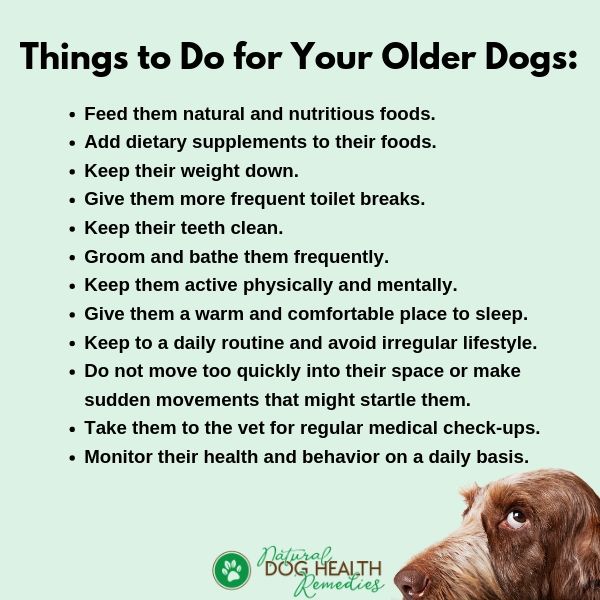C155C Chronicles
Exploring the latest trends and insights.
Fur-getting Old: A Playful Approach to Senior Pet Wellness
Discover fun tips and joyful ideas to keep your senior pets thriving and happy. Embrace their golden years with love and laughter!
Understanding the Unique Health Needs of Senior Pets
As pets age, their health needs change significantly, making it crucial for pet owners to understand the unique requirements of senior pets. Just like humans, senior pets may experience a range of physical and mental health challenges, including arthritis, dental issues, and cognitive decline. It’s essential to monitor their health closely and schedule regular veterinary check-ups to catch any potential problems early. Additionally, dietary adjustments may be necessary to accommodate their slower metabolism and increased susceptibility to obesity. Providing senior-specific diets with appropriate nutrients can help maintain their overall health and vitality.
In addition to physical care, mental stimulation also plays a vital role in the well-being of senior pets. Engaging them with interactive toys, puzzle feeders, and gentle exercise can help keep their minds sharp and decrease anxiety. It’s also important to create a comfortable environment that accommodates their mobility issues. This might involve adding ramps or orthopedic beds to ease their movement. By being proactive and attentive to the unique health needs of senior pets, owners can ensure that their furry companions enjoy their golden years with the best quality of life possible.

Top 5 Fun Activities to Keep Your Aging Pet Active
Keeping your aging pet active is essential for their overall health and well-being. Engaging in fun activities can help improve their mobility, maintain a healthy weight, and enhance their mental stimulation. Here are the top 5 fun activities to consider:
- Gentle Walks: Short, leisurely walks are perfect for senior pets. They allow your furry friend to explore their surroundings without overexerting themselves.
- Interactive Toys: Puzzle toys can stimulate your pet's mind while keeping them physically engaged. They are designed to challenge your pet and reward them with treats.
- Swimming: For many pets, swimming is a low-impact exercise that helps strengthen muscles while being easy on the joints. Ensure you supervise your pet in the water.
- Training Sessions: Short, fun training sessions can keep your aging pet mentally sharp. Teaching them new tricks or reinforcing old ones is a great bonding experience.
- Social Playdates: Arranging playdates with other gentle dogs can encourage your pet to engage in friendly interactions, providing both social and physical activity.
Is Your Senior Pet Getting Enough Nutrition? Key Dietary Tips
As pets age, their nutritional needs often change significantly, making it crucial to assess whether your senior pet is getting enough nutrition. Senior pets may have different dietary requirements than their younger counterparts; for example, they may need more protein to maintain muscle mass and less fat to stave off obesity. It's important to consult your veterinarian for a personalized diet plan. Keep an eye out for signs of nutritional deficiency, such as weight loss, lethargy, or changes in coat quality, which may indicate that your senior pet requires dietary adjustments.
When considering dietary tips for senior pets, focus on the following key areas:
- Quality Proteins: Choose high-quality protein sources to help maintain muscle mass.
- Omega Fatty Acids: Incorporate fatty acids to support skin health and reduce inflammation.
- Digestive Health: Look for diets that include fiber to aid digestion and prevent constipation.
- Hydration: Ensure your pet has access to fresh water, as hydration is essential for overall health.